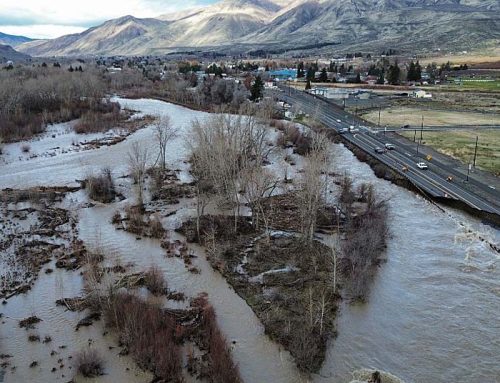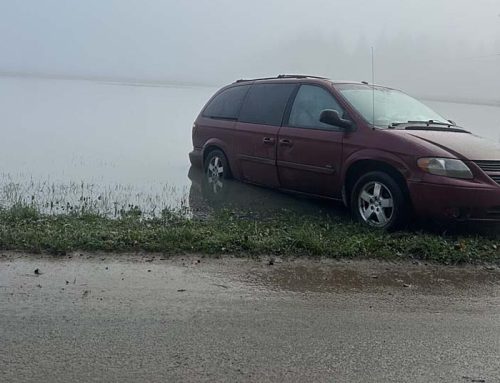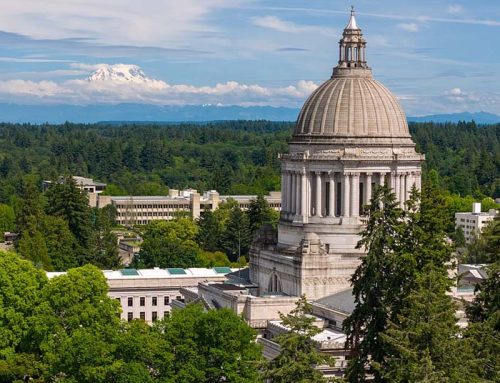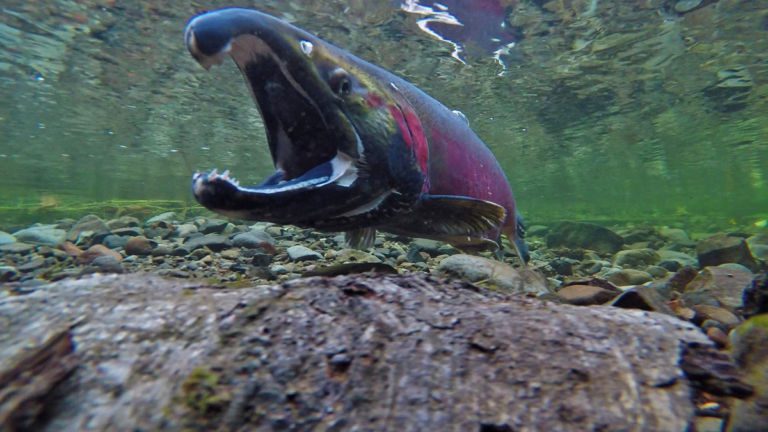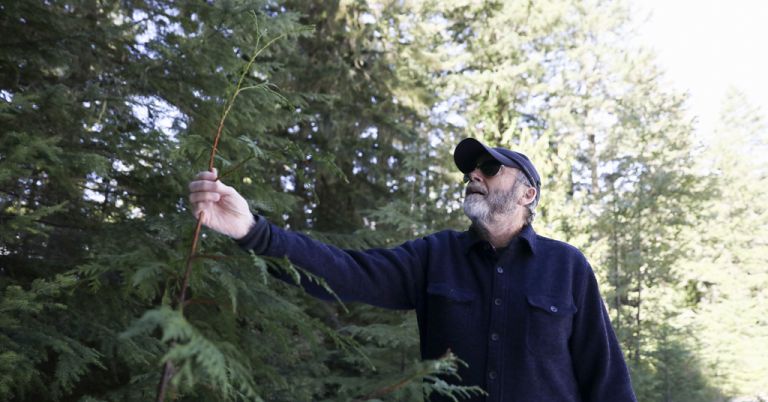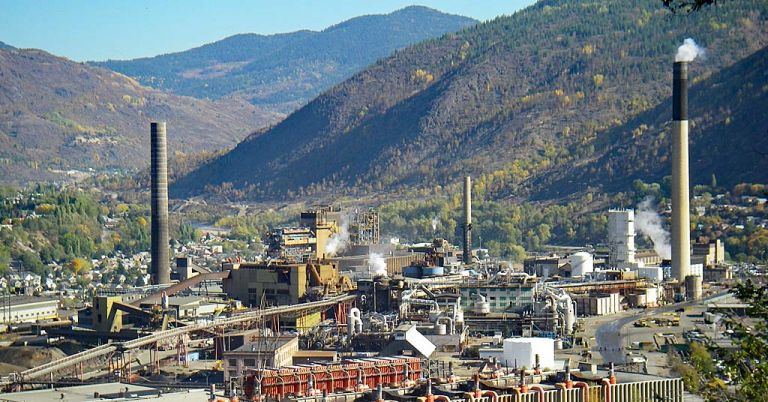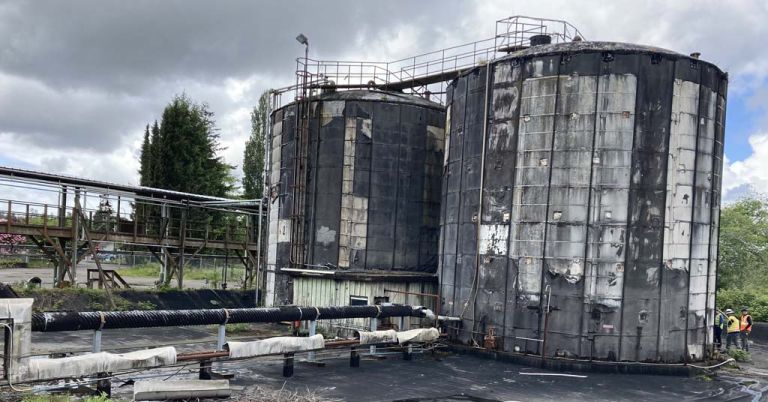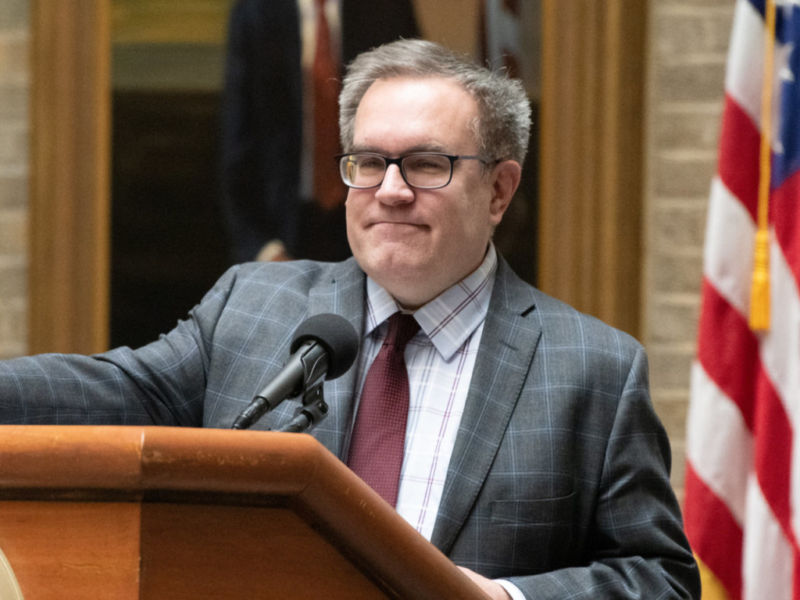
EPA Administrator Andrew Wheeler speaks at the USDA Headquarters on Feb. 27, 2019. Photo courtesy of USDA
By Ben Mitchell. April 23, 2020. The novel coronavirus COVID-19 pandemic has been dominating headlines in the United States for the past several weeks, and for good reason. The virus has closed borders, shut down a huge portion of the economy, spurred stay-at-home executive orders, upended our daily lives in myriad ways, stoked political unrest, and, most importantly, as of this writing, has sickened roughly 760,000 people in the United States and killed more than 40,000.
Worldwide, that tally rises to 2.3 million people infected and more than 165,000 dead, although these figures will already be outdated by the time you read this. COVID-19 is now the No. 1 cause of death in the U.S. — killing more people at a higher daily rate than heart disease or cancer. And while the pandemic is something deserving of attention and concern, it’s not the only thing our government is occupied with at the moment.
At a time when many government offices are now closed to the general public, some of these agencies are still operating and continuing to make key decisions that affect commerce, public health and the environment.
On March 26, the Environmental Protection Agency (EPA) issued a memo to “All Governmental and Private Sector Partners” that it would be relaxing enforcement of environmental rules and would not be seeking penalties for noncompliance with routine pollution monitoring and reporting requirements from businesses and other entities — if the EPA determines noncompliance was due to the COVID-19 pandemic. Although the EPA states in its release that these measures are only temporary, no end-date for this grace period is given.
The policy caught the attention of a number of news outlets, including The Hill, The New York Times and the Associated Press. It even raised eyebrows across the pond at The Guardian, who called it, “an extraordinary move that has stunned former EPA officials,” referring to Cynthia Giles, President Barack Obama’s former head of EPA enforcement, who characterized the memo as “a nationwide moratorium on enforcing the nation’s environmental laws and… an abdication of EPA’s responsibility to protect the public.”

Governor Jay Inslee and Governor Kate Brown speak out against fossil fuels climate change. They also created orders requiring stay at home and business closures. Photo by Trudi Inslee
In a follow-up press release, the EPA took issue with some of the reporting, accusing journalists of “repeating reckless propaganda,” with the EPA clarifying that the policy was “not a license to pollute.” However, the The Guardian reported that the policy change came on the heels of a lobbying push by the American Petroleum Institute, who sent a letter to the EPA a few days prior to the change asking for the suspension of the rules.
And it’s not the only curtailment of environmental rules President Donald Trump’s administration has pursued during the pandemic. A few days after the EPA policy challenge, the administration announced it would be rolling back Obama-era emissions standards for vehicles — a move that Trump officials say will create jobs and cheaper cars, but that critics warn will add a billion more metric tons of carbon dioxide to the atmosphere. And last week, the EPA said it would be changing the calculating method used to assess the costs and benefits of power plants controlling the release of toxic metals — again, rolling back standards established during the Obama presidency.
It’s hard to quantify how the EPA’s policy change on reporting and enforcement will directly affect the Columbia River Basin. But Lauren Goldberg, legal and program director for Columbia Riverkeeper, is concerned that it will.
“EPA’s changes in enforcement could lead to more toxic pollution in the air we breathe and the Columbia River. EPA plays a vital role in enforcing environmental laws in the Pacific Northwest. The agency’s handling of enforcement during the pandemic is deeply disturbing,” she wrote in an email to the Columbia Insight, adding that the environmental advocacy nonprofit’s attorneys and community organizers are in the process of “responding to a flurry of federal actions to gut environmental and public health protections.”
And while the EPA is putting its regulatory oversight on the back burner, the Federal Energy Regulatory Commission (FERC) is still approving projects, including a sizable one in the Pacific Northwest. On March 19, FERC, lacking a full five-member commission, voted 2-1 to approve the Jordan Cove liquefied natural gas export terminal and Pacific Connector Gas Pipeline in Coos Bay, Oregon. Pembina Pipeline Corporation, the Canadian company looking to build the project, says it will create thousands of union construction jobs and contribute more than $100 million annually in state and local taxes.
The project enjoys the support of some business and labor groups, but has hit roadblocks at the state level, having been denied a clean water permit from the Oregon Department of Environmental Quality, as well as receiving an objection from the Oregon Department of Land Conservation and Development on the grounds it was inconsistent with the Coastal Zone Management Act, according to an article in the Northwest Labor Press. On top of that, both Oregon Governor Kate Brown and Senator Ron Wyden heavily criticized FERC for what they characterized as a rushed vote by an incomplete panel. In a statement, Gov. Brown made note of the timing of the decision.
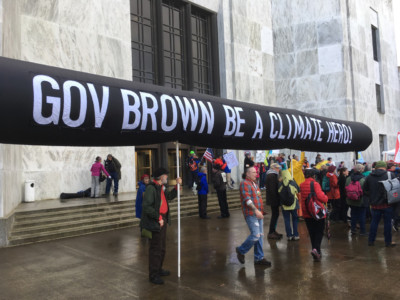
Jordan Cove protesters hold a rally at the State Capitol. Photo by Don Ewing, 350Eugene
“Given a national and state emergency, in which the federal government and its agencies are unable to fulfill their basic responsibility to keep citizens safe, it is stunning that the FERC moved forward on this decision,” she said.
According to a statement on FERC’s website, despite the pandemic, the commission is still “committed to continuing to carry out our important work and fulfilling our statutory obligations as seamlessly as possible during this time.”

